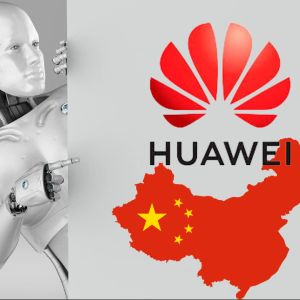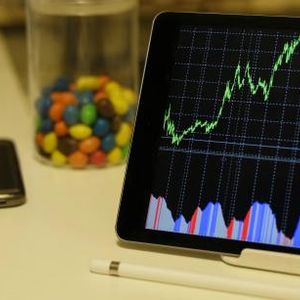According to reports from China, Huawei Technologies, the Chinese tech giant, has lowered pricing for several high-end handsets in new efforts to stimulate sales. In addition, the entity plans to begin mass-producing its most advanced AI processor in the first quarter of 2025. According to Huawei’s official online store , Vmall, the company has reduced the price of its top-of-the-line Pura 70 Ultra device, launched in April, to 8,999 yuan (US$1,233) for the 1 terabyte version. This represents an 18% reduction from the original price of 10,999 yuan. The 512 gigabyte version is being sold at a 20% discount. In addition, the Mate X5, a foldable smartphone introduced in September 2023, is currently available at a discounted price of 2,500 yuan. This is 19% less than its original starting price of 12,999 yuan. Based on data from research firm CINNO, the model has been the most popular foldable handset in China since its introduction. People familiar with the matter say Huawei has been struggling to make enough chips due to U.S. restrictions. Could it be that the organization needs more funding, hence this move? Huawei initiative According to the consulting firm Canalys, the Shenzhen-based company’s local shipments of high-end smartphones (phones that cost more than US$600) rose 34% in the September quarter. That gave Huawei a 33% share of its home market, getting closer to Apple, which still had a 52% share and was in first place. In September, Huawei introduced the Mate XT, the world’s first trifold smartphone. According to Counterpoint, the devices and the Mate X6 are anticipated to further solidify the company’s dominant position in the segment. Per CINNO, Huawei shipped 1.12 million foldable handsets in the third quarter, a 97% increase from the previous year. The research firm says the Mate X5 was a significant factor in the increase in shipments. However, according to researchers at TechInsights, the current Mate 70 series is seeing lower sales due to weaker processors than competitors. Counterpoint Research predicts that the Mate 70 series handsets will ship in excess of 10 million units over their lifetime. Still, the Mate 70’s release was closely watched by the industry to see how Huawei was doing with chip development. The US-banned company put a 7-nanometer chip in its Mate 60 series smartphones last year. Huawei’s smartphones use South Korean memory chips TechInsights, a research firm, has reported that Huawei Technologies’ most recent line of flagship smartphones is equipped with memory chips manufactured by South Korean semiconductor supplier SK Hynix. This is because Chinese-made alternatives are scarce due to a US-led export prohibition on advanced chipmaking equipment to the mainland. In addition, analysts at the Canadian company discovered SK Hynix’s 12-gigabyte low-power mobile DRAM and 512GB NAND within a Huawei Mate 70 Pro handset. The 16GB DRAM and NAND from SK Hynix were identical to those of the Mate 70 Pro Plus, which was, notably, the more expensive model. According to TechInsights senior analyst Jeongdong Choe, SK Hynix used 14-nanometer technology and advanced extreme ultraviolet lithography to build these mobile DRAM modules. NAND is a form of memory used for flash storage, whereas DRAM, or dynamic random-access memory, is widely utilized in smartphones and computers. Reports assert that SK Hynix began mass-producing the DRAM chips featured in the Mate 70 Pro in the second half of 2021. This was nine months after the US cut off Huawei’s access to processors and other US technologies, such as Google services, significantly affecting the Chinese company’s smartphone business. Huawei to mass-produce newest AI chip in early 2025 According to reports, the telecoms giant has sent models of its newest chip, the Ascend 910C, to some tech companies and has begun taking orders for it. The Ascend 910C is meant to compete with chips made by the U.S. company Nvidia. According to a source who was informed of the results, the 910C is being manufactured by the renowned Chinese contract chipmaker Semiconductor Manufacturing International Corp (SMIC) (0981.HK), which has opened a new tab on its N+2 process. However, due to a lack of advanced manufacturing equipment, the chip’s yield has been restricted to approximately 20%. However, to be commercially viable, advanced processors must have yields exceeding 70%. The sources stated that Huawei was compelled to reduce production targets and postpone the fulfillment of orders for the 910B, the company’s most sophisticated processor, due to its yield of only approximately 50%. So here we go. Huawei’s Ascend 910B AI chip has been found in some tests to deliver 80 per cent of the efficiency of an Nvidia A100 when training large language models, but “in some other tests, Ascend chips can beat the A100 by 20 per cent”, said Wang Tao, chief operating… pic.twitter.com/YsM8Aejwgi — SlavicFreeSpirit (@SlavFreeSpirit) June 8, 2024 However, The U.S.-China trade and security dispute is centered around Huawei. Washington has implemented a series of restrictions on Huawei and other Chinese companies. They contend that their technological advancements pose a national security threat to the US. These constraints have hindered Huawei’s capacity to achieve a sufficient yield for its advanced AI chips. This percentage is of completely functional chips that exit the manufacturing line to render them commercially viable. Land a High-Paying Web3 Job in 90 Days: The Ultimate Roadmap



















